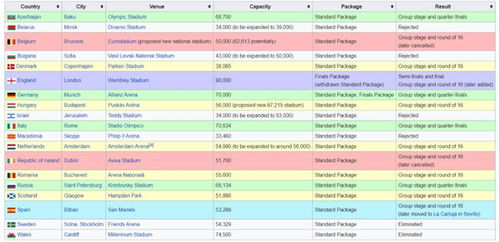Title: Understanding the Duration and Impact of the UEFA European Championship
The UEFA European Championship, often referred to as the Euros, is a prestigious football tournament that captivates fans worldwide. Understanding its duration and impact is crucial for both enthusiasts and stakeholders in the footballing world.
Duration of the UEFA European Championship
The UEFA European Championship typically spans over a month, comprising various stages:
1.
Qualification Phase:
This phase occurs prior to the main tournament and involves national teams competing in qualification matches to earn a spot in the final tournament.
2.
Group Stage:
The tournament kicks off with the group stage, where participating teams are divided into groups and compete against each other. Each team plays a set number of matches within their group.
3.
Knockout Stage:
Following the group stage, the tournament progresses to the knockout stage, where teams compete in elimination matches. These include the Round of 16, Quarterfinals, Semifinals, and ultimately, the Final.
4.
Final:
The climax of the tournament, where the two remaining teams battle for the prestigious title of European champions.
Impact of the UEFA European Championship
The UEFA European Championship holds significant influence and impact across various dimensions:
1.
Sporting Excellence:
The tournament showcases the highest level of football talent in Europe. It provides a platform for players to exhibit their skills on an international stage, fostering competition and camaraderie among nations.
2.
Cultural Significance:
Beyond sports, the Euros serve as a cultural extravaganza, bringing together people from diverse backgrounds to celebrate their shared passion for football. It fosters unity and solidarity, transcending geographical and cultural boundaries.
3.
Economic Boost:
Hosting or participating in the UEFA European Championship can provide a substantial economic boost to the host nation and participating teams. The influx of tourists, sponsorship deals, merchandise sales, and television rights contribute to the overall economic impact.

4.
Legacy and Infrastructure Development:
Hosting the tournament often necessitates the development or renovation of stadiums, transportation networks, and accommodation facilities. These infrastructural enhancements leave a lasting legacy for the host nation, benefiting both the sporting and tourism sectors in the long term.
Guiding Recommendations
For fans and stakeholders alike, here are some guiding recommendations regarding the UEFA European Championship:
1.
Embrace the Spirit:
Embrace the spirit of the tournament by celebrating diversity, sportsmanship, and excellence in football.
2.
Plan Ahead:
If attending the tournament or hosting related events, plan logistics well in advance to ensure a seamless and enjoyable experience.
3.
Promote Inclusivity:
Promote inclusivity within the football community, welcoming fans and players from all backgrounds to participate and engage in the festivities.
4.
Support Sustainability:
Encourage sustainable practices in event management and infrastructure development to minimize environmental impact and leave a positive legacy for future generations.
In conclusion, the UEFA European Championship is not just a football tournament; it's a spectacle that unites nations, celebrates talent, and leaves a lasting legacy. Understanding its duration and impact enables fans and stakeholders to fully appreciate the significance of this monumental event.

